Images by SOMMER BROWNING +
Text by NOAH ELI GORDON
FIFTEEN PROBLEMS
The Problem
He has in the middle of an important phone call an overwhelming need to urinate and fills the toilet bowl with paper towels in order to dampen the sound. This is the opposite of finding your voice. Played in reverse, it resembles a postcard of a beautiful sunset stuffed haphazardly into the mailbox. The problem is it’s the wrong mailbox.

The Problem
The first person the social networking website suggests you befriend is the one most responsible for your obsessive compulsion to check for friend suggestions. This is the problem with the first person: the first person is too selfish; the second person, too accusatory; the third person—just plain distant. It’s like a train whistle without a train, this barbaric act of writing poetry after the internet.

The Problem
She suddenly remembers having long ago gotten rid of those terrible books by the author she’s reluctantly putting up next week and so spends the afternoon going from bookstore to bookstore in the hopes of replenishing the shelves he’s sure to scour, eventually buying back the very copies he’d inscribed to her so many years ago, and thusly avoiding the problem altogether.

The Problem
Here, I want to describe in exact and blinding detail the particulars of three pigeons landing on a neighbor’s roof. Here, I want to perfect the appearance of an indifferent and aloof countenance. The problem is not that both desires appear at once, but that both desires appear at once awkwardly indistinguishable.
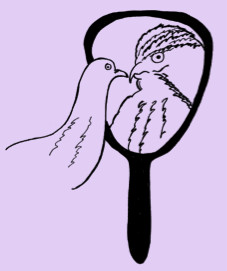
The Problem
If he sleeps with the windows open, the noise of morning traffic wakes him several hours too early. If he sleeps with the windows closed, the heat of the stuffy apartment makes for a restless and difficult night. Between these two options, as between the unconditional love of two exemplary and devoted parents, the problem sleeps like a baby.
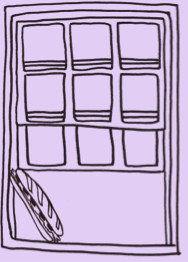
The Problem
First, there were a lot of gods. Then there was one, but a lot of ones. Can I tell you that what I most admire about the arachnid is the mechanics of so many legs in motion? After a while, the problem adds up to something infinite. And then, then there’s just us counting it.
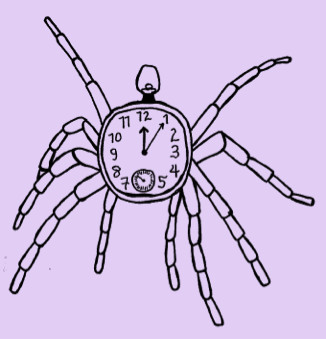
The Problem
My landlord installs a new banister on the front porch which from this chair obstructs my view of the faces of those who pass. My wife, it turns out, dislikes aphorisms, although I’ve written one for her: ethics is always a voyeuristic endeavor. The people pass, but they’re no longer “the people.” When I say dislikes, I mean vehemently, but I’m not even talking here. It’s like a birdsong to a bird. The problem is purely evaluative.
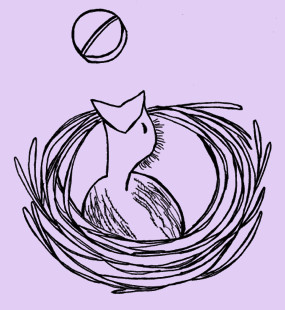
The Problem
He kissed his third cousin once, in the rain, under a canopy of branches and kudzu, on a Wednesday afternoon. Incidentally, today is also Wednesday. I like to think of it as the third day of the week. The problem is it’s the fourth.

The Problem
Between a woman who wants to retrieve her hiking boots from the sun porch where several wasps are hovering expectantly and a camp counselor who attempts to stifle his amusement with the teenage girl’s complaint about what she calls a scorpio in her cabin, the problem oscillates continually, refusing the finality of a decision, no matter how ominous or innocuous. In this way, it is like a Dutchman who doesn’t know French, who speaks a little English but certainly can’t read it, and who happens to be staying at a decidedly Americanized hotel in Paris, watching what turns out to be a Dutch film that has been dubbed into French and given English subtitles. Even in his uncertainty he seems so relaxed and sure of himself. To the west the sun begins its slow descent. The wasps deposit themselves on a window. Mercury is in retrograde.

The Problem
He feels a strange, superficial obligation to say hello to his neighbor when they cross paths on the porch, pass on the stairway, stand, amazingly, at the front door together, keys awkwardly in hand, walk by each other in the back alley, exiting the laundry room, taking out the trash, picking up the mail, anywhere, really, just on the periphery of public space, in those transitional places between the private security of one’s apartment and all the exits and entryways it abuts, all the blurred edges around what constitutes being at home, but never, no matter what, and herein lies the problem, never when they’re both out on their respective balconies, even though only a slight partition—a two-foot tall railing really—separates them, even though they could almost touch, almost be page turners for the symphonic quiet of the personal space they’re both intent on maintaining. But maybe I’m wrong; maybe it isn’t a problem at all. Maybe they’ve exchanged pleasantries on numerous occasions, even become fast friends, sharing chitchat and dinners, commiserating, drinking, eventually moving in with each other as lovers. I couldn’t say for sure. I say hello when I have to, but only in passing, only outside, near the front door, or the steps, but never out here, out on the balcony, where the treetops are so close, so goldenly comforting.

The Problem
For weeks a sharp pain so troubles him while chewing that he no longer uses one side of his mouth, the side on which the dentist, when he does finally visit, is unable to find anything out of the ordinary. Here, I could quote Yeats. For example, “Personality is born out of pain.” My friend Richard once leveled the following complaint against me: “Noah thinks that bar is too common.” Here, I could quote Eliot. For example, “The progress of an artist is a continual self-sacrifice, a continual extinction of personality.” It is often difficult to tell the difference between the common and the ordinary. Pain, on the other hand, is always personal. The problem is I’m the one troubled by quotation.
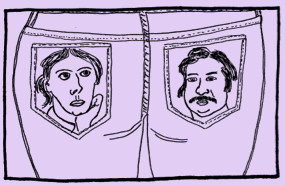
The Problem
The video she wants to watch takes an exorbitantly long time to load, so she opens a new window to watch a different video while waiting, which also takes an exorbitantly long time to load, so she opens a new window to watch a different video while waiting. As though stuck forever between Dante and Beatrice, sometimes the problem is this transparent.

The Problem
She writes a stunningly accurate review praising the reclusive novelist’s long-awaited new book. Upon its publication, a key sentence of the review contains an error of omission that, while minor, reverses her intended meaning, rendering the piece as a damning take on the book. Still, there is near universal agreement as to her review’s stunning accuracy. The problem is, as any good narrator knows, accuracy is never stunning.

The Problem
I have seven quarters which I am unable to assemble into a dollar. Together, they make almost two, but never one. There I go, thinking of sex again. The birds in the trees are allegorical. Any birds. Any trees. The problem is formal. It takes the form of a washing machine. It takes exactly one dollar.

The Problem
A painting of a photograph based on a short film about a piece of music commemorating the anniversary of a famous novel’s publication is still a painting. A photograph based on a short film about a piece of music commemorating the anniversary of a famous novel’s publication is still a photograph. A short film about a piece of music commemorating the anniversary of a famous novel’s publication is still a short film. A piece of music commemorating the anniversary of a famous novel’s publication is still a piece of music. The problem is the anniversary of a famous novel’s publication is just an anniversary.
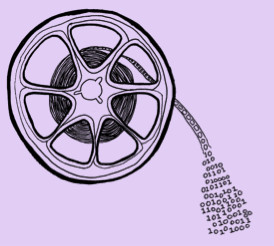
Sommer Browning is the author of Either Way I'm Celebrating (Birds, LLC; 2011) and various chapbooks. She is a member of the poets' theater GASP and cofounder of Flying Guillotine Press.
Noah Eli Gordon operates various levers behind Letter Machine Editions, The Volta, Subito Press, and CUBoulder’s MFA program. More info here:http://www.noaheligordon.com/
